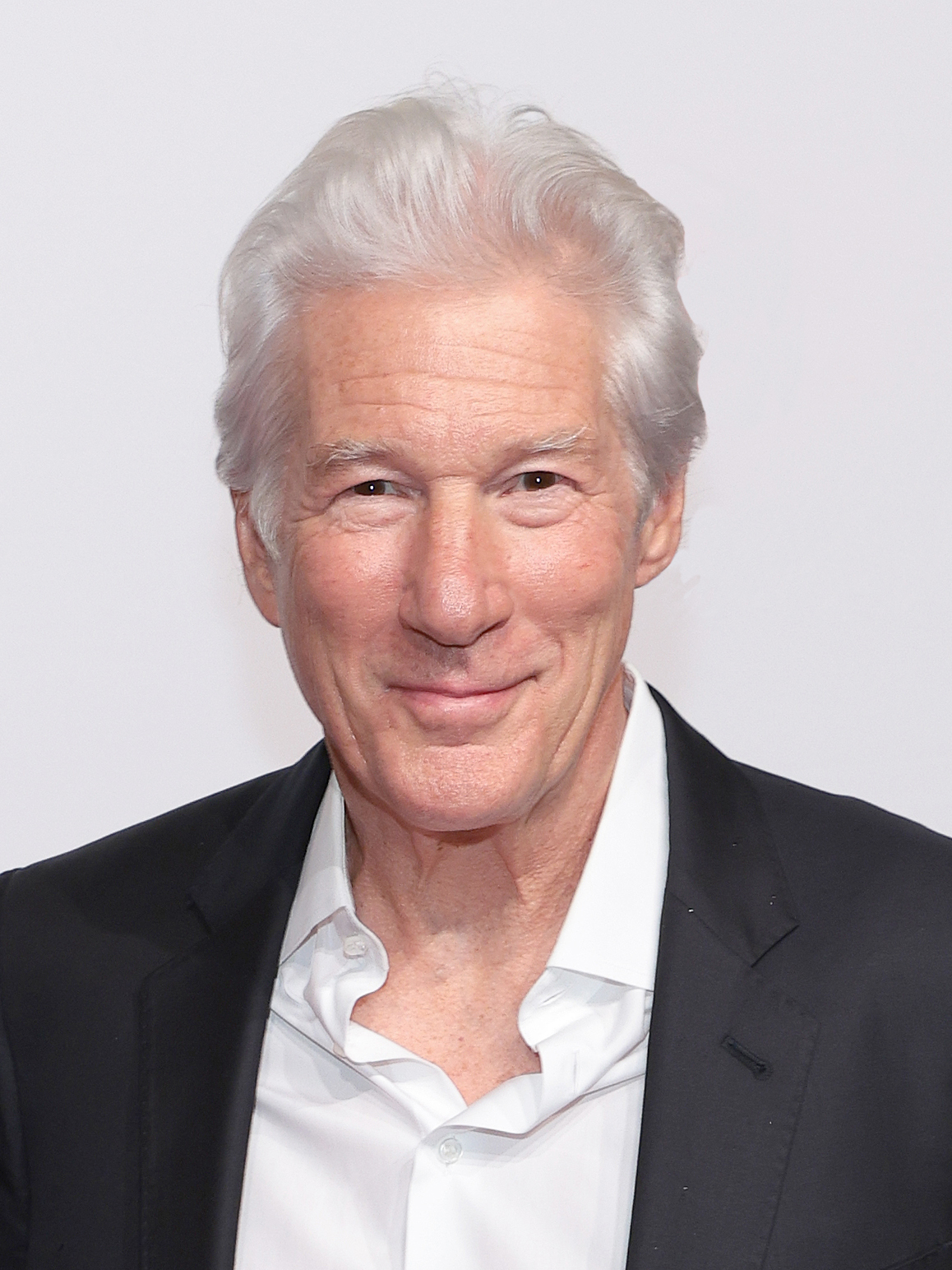
- Golden Globe Awards
Richard Gere on the Fortieth Anniversary of “An Officer and a Gentleman”
Forty years have passed since the release of An Officer and a Gentleman in 1982, and everyone remembers the famous scene in which Golden Globe winner (and 4-time nominee) Richard Gere, in his immaculate white military uniform, takes Debra Winger in his arms and carries her out while her factory co-workers cheer wildly. The film, directed by Taylor Hackford and written by Douglas Day Stewart, became an international success, grossing almost $200 million worldwide. It is a Cinderella story revisited, and a precursor, many said, of Pretty Woman (1990), another stellar hit for Gere who was 32 at the time. He was just coming off the career-making vehicle American Gigolo (1980), cementing his immense allure and sex appeal to mass audiences. A Hollywood legend was born.
The storyline of An Officer and a Gentleman is simple: Gere plays Zach Mayo, a US Navy aviation officer candidate at the beginning of his tough training. A young townie named Paula (Winger), a factory worker, attracts his attention. She also dreams of flying high as a union lawyer. An Officer and a Gentlemen is considered a traditional army training film, but it’s also a film about life in an economically depressed small town where the only hope of escape comes from marrying the right aviation officer candidate. As a story about small-town life, the story comes off as surprisingly poignant and pleased even the most rigorous film critics (Pauline Kael loved the film). The film went on to garner eight Golden Globes (including Best Picture – Drama) and six Oscar nominations, winning both awards for Best Supporting Actor (Gossett Jr.), and for the song “Up Where We Belong.” A famous long-running Broadway musical with the same title, with endless revivals, was based on the movie (with that early ’80s feel and signature songs).
The film was screened at the Magna Graecia Film Festival in Catanzaro Lido, Calabria (Italy) on August 5, when a special award was given to Gere who was present at the event, accompanied by his wife, Alejandra Silva, in front of a cheering audience of 2,000 people in an open-air arena. “The first thing I remember is meeting Taylor Hackford in a restaurant in New York where everyone used to go to called Elaine’s,” Gere said during the masterclass preceding the screening. “At that point, Taylor had made some documentaries, never a narrative film. And we started talking about it. I read the script and my first impression was that it was very sentimental. I wasn’t sure it was something I wanted to do; this was a time when we were all trying to make much more hard-edged movies. And it seemed somehow soft. But that was just my impression at that time. I liked Taylor a lot, I liked the documentaries he made, and I really thought he knew what he was doing. So we dove in with Doug Day Stewart, the writer, and we spent about two weeks, or maybe it was a month, completely rethinking and rewriting the script. And I think we made it a little tougher.”
Gere started to see how he could play this character, how to make him emerge over the cliches of the genre. “It was a very small budget,” he said, “and it was really built around me and Debra Winger. There were also a lot of other wonderful actors who were not well known at that time. Many of them have emerged since then or have become quite successful. I remember we didn’t have any help from the Navy, which surprised me. The military didn’t want to have anything to do with this because my father in the movie, played by Robert Loggia, was an alcoholic and a womanizer and had some serious problems. And they thought it blemished the image of American forces, (laughs), but everyone knows that’s the way it is, I mean these are complicated people, especially the military.”
The production continued. They knew they were making a romantic story, but they also wanted to be as true to the reality of that situation and as meaningful as they could make it. To tone down the sentimentality and make it resonate deeper, “you had to give yourself to it,” Gere explained. “You couldn’t play the surface, you had to be completely inside. And the shoot went quite well. I was learning karate and we would be shooting 12 hours and then I would do two hours of karate and I was probably in the best shape of my life making that movie, skinny as a rail. My recollection is that the script was played out beautifully, we didn’t have to make a lot of changes during the shooting. We were on location in a place called Port Townsend, Washington, and it was very far away from the modern world. It was a stretch of coastline, very rough, difficult. There was very little employment in that area, so it had a kind of rural and destitute kind of feeling, albeit with this incredible natural beauty, from Oregon to Washington to British Columbia, the Vancouver Island, really, really beautiful, incredible places. So, I think nature was informing us quite a bit. The fact that we were all young actors at that point and had enormous energy and passion, I think it really fulfilled all of us.”
Gere remembered the 30th anniversary of the film with a new print that he went to see in New York. “I hadn’t seen the movie since it opened,” he recalled. “I was sitting there watching the film and I was amazed at how there was nothing anachronistic about it. It felt very immediate, it felt like a modern film. The energy in the way it was shot, the rhythms of it are very modern. It didn’t feel like something from many decades ago. It had a contemporary feel. It still does.”

